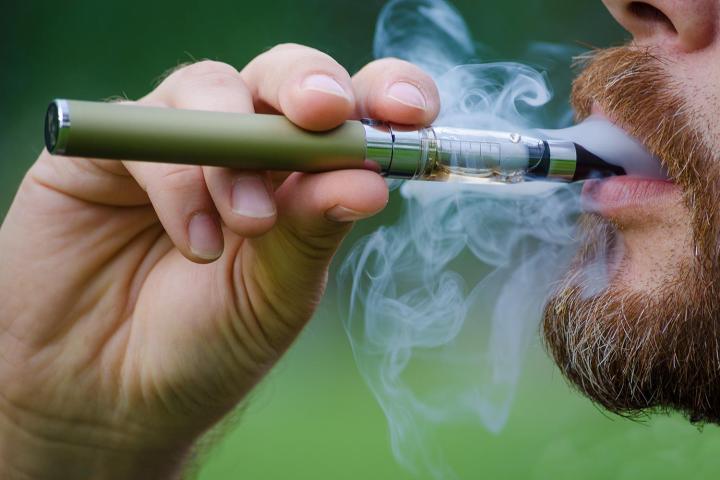
Electronic cigarettes have experienced a pretty sizable uptick in popularity over the past few years, partially due to the fact that they’re sometimes touted as a safer alternative to traditional cigarettes. But a newly-published study –one of the first to examine the biological effects of inhaling vaporized e-liquid– suggests that this might not be the case.
The study, which was recently published in Nature and presented at the American Association of Cancer Research’s annual meeting this week, found that bronchial cells grown in a medium exposed to e-cig vapor showed “strikingly similar” gene mutations to those grown in a medium exposed to tobacco smoke.
Further research is needed to draw clear-cut conclusions, but these similarities may be an indicator that e-cig vapor could potentially increase a user’s risk of cancer, despite the fact that e-liquid is completely tobacco free and doesn’t require combustion to be consumed.
“They may be safer [than tobacco], but our preliminary studies suggest that they may not be benign,” said study author Avrum Spira, a genomics and lung cancer researcher at Boston University.
The next step is to conduct further experiments on the genes altered by the e-cig vapor to discern their cancer-causing potential. “These studies will determine the impact of e-cig exposure on lung carcinogenicity and provide needed scientific guidance to the FDA regarding the physiologic effects of e-cigs,” Spira added.
In spite of all the uncertainty surrounding their potential health effects, the FDA has taken its sweet time in regulating e-cigs, which have risen from relative obscurity to become a multi-billion dollar industry in just a few years time. Without any federal regulation, the e-cigarette market is basically the Wild West right now. There’s little if any quality control, and marketers can peddle e-cigs however they want — be it to kids, or as a smoking cessation method.
Proposed federal rules on how to regulate e-cigs are expected to come down soon, but considering what research has shown thus far, in the meantime it’s probably a good idea to approach e-cigargette use with caution and not assume it’s completely safe.
(Images © Marc Bruxelle via Shutterstock)
Editors' Recommendations
- Juul’s CEO steps down amid federal investigations into the e-cigarette giant
- The Trump administration will move to ban flavored e-cigarettes




